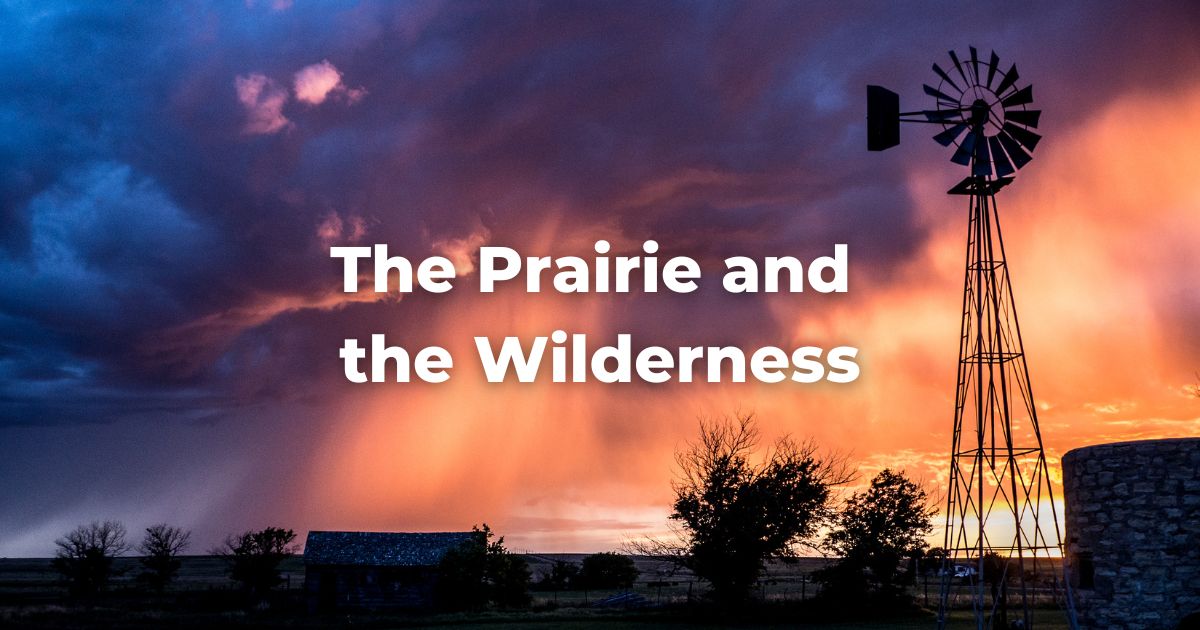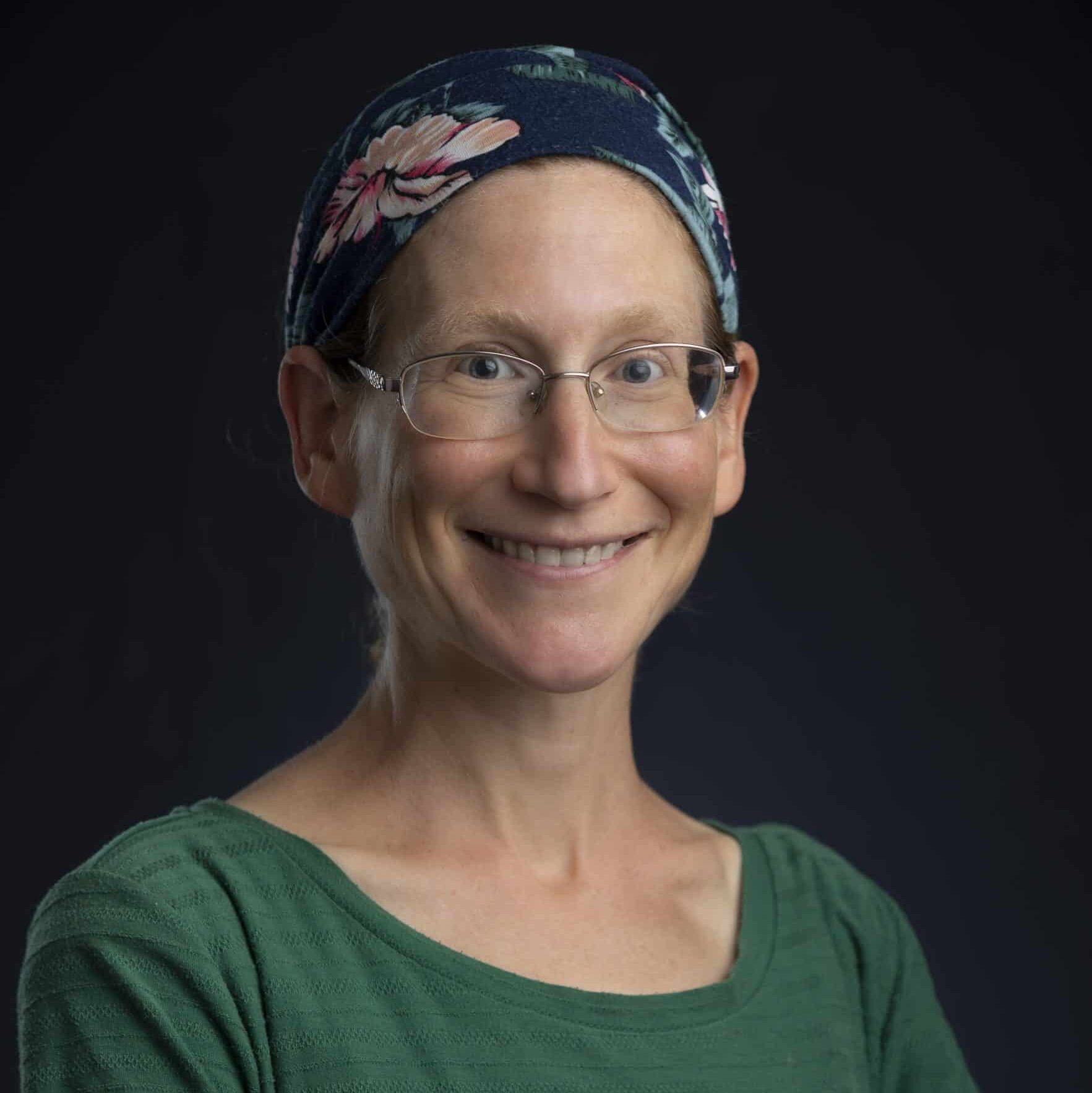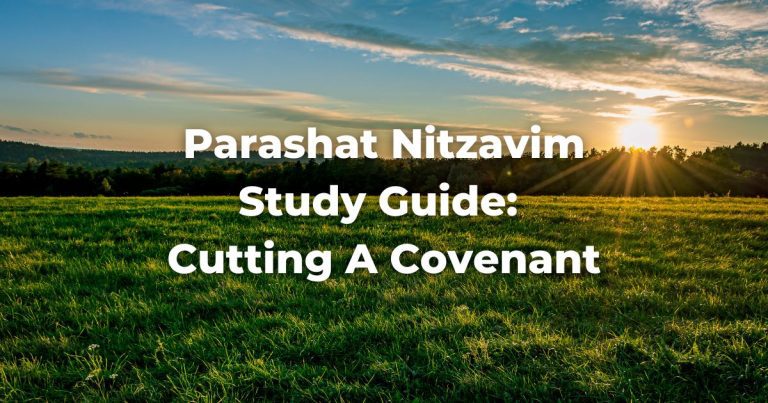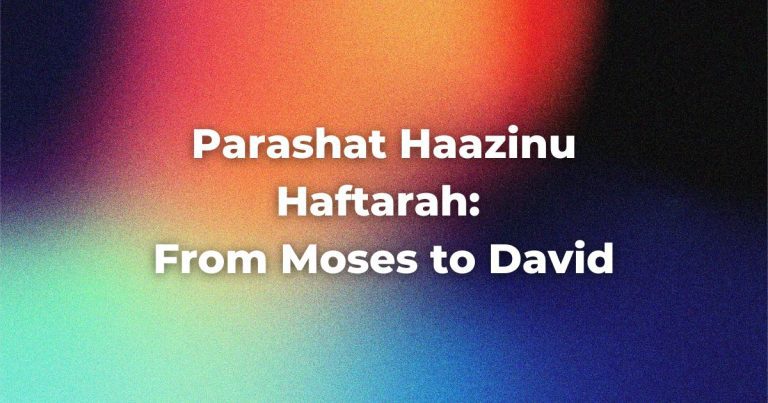Over the course of the past year I read my children the entire series of Little House on the Prairie books, in which Laura Ingalls Wilder chronicles her childhood on the frontier in the latter half of the nineteenth century.
My kids were fascinated by the one-room schoolhouse, by the long winters that buried the prairie in snow, and by the Indians with their scalp-locks and eagle’s feathers.
The Concept of an Autobiography
But above all they were fascinated by the concept of autobiography, and they kept returning to the same questions: How could Laura be both the author of the books and the main character in them? Did she really remember every single word that every person said? What about when she wrote about her husband Almanzo—how did she know exactly what happened to him in childhood, before she met him? How can someone write autobiographically about what they cannot possibly remember?
I answered my children by invoking this week’s parashah, Vayelech.
“It’s like Moshe,” I told them.
We read in this week’s parashah that Moshe wrote the entire TorahRefers to the first five books of the Hebrew Bible, the Tanakh, also called the Five Books of Moses, Pentateuch or the Hebrew equivalent, Humash. This is also called the Written Torah. The term may also refer to teachings that expound on Jewish tradition. Read more: “[Moshe] put down in writing the words of this Torah to the very end” (Deuteronomy 31:9).
The Ramban understands this verse as indicating that Moshe wrote the entire Torah, from the beginning of Genesis until the end of Deuteronomy, which concludes with an account of Moshe’s death and his burial by God on Mount Nevo.
But what about those moments he could not possibly remember, like his own death, described in the final eight verses of our parashah, which bring the Torah to a close?
The Talmudic rabbis consider this question in tractate Bava Batra 14b, amidst a discussion about the authorship of the various books of the Bible. We learn that Joshua wrote his own book, except for the account of his death, which was written by his son Elazar, or perhaps by Pinchas. Likewise Samuel wrote his own book, except for the account of his death, which was recorded by Gad, the seer and Natan, the prophet.
But what about the Five Books of Moses? How much of the Torah did Moshe write, and who recorded the account of his death?
The rabbis posit that Moshe wrote three parts of the Bible:
- He wrote his own book, understood to be a reference to the Five Books of Moses.
- He also wrote the portion of the Bible about the prophet Balaam, who was considered the only other individual whose prophetic abilities matched those of Moshe.
- And he wrote the story of Job, who, according to the rabbis, may have existed at the time of Moshe or at various other historical periods, or perhaps, as one anonymous talmudic rabbi contends, “Job never existed and never was created, but his story was a parable.” That is, if Moshe didn’t know Job personally, he might have invented his story, perhaps as a way of working through his own struggles with the cruelties of fate after he was told that he would not be allowed to enter the promised land.
When it comes to the account of Moshe’s death in our parashah, the rabbis disagree.
According to Rabbi Yehuda, Moshe wrote the entire Torah up until this point, and then Joshua took over with the verse, “So Moshe the servant of the Lord died there, in the land of Moab, at the command of the Lord” (Deuteronomy 34:5).
As Rabbi Yehuda argues, “Could it be that Moshe died and wrote ‘So Moshe the servant of the Lord died?’” Surely these verses had to be written by Moshe’s successor. Just as Moshe passed on the mantle of leadership to Joshua, he also passed on to him the task of completing the writing of the Torah. But Rabbi Shimon is troubled by this solution. After all, as we read in our parashah, once Moshe finishes writing the Torah, he hands it to the Levites, charging them to “take this book of the Torah and place it in the Ark of the covenant” (Deuteronomy 31:24-25).
How could Moshe have written and handed the Levites an incomplete Torah?
As Rabbi Shimon puts it, “Could it possibly be that the Torah was missing even a single letter?”
Rabbi Shimon therefore proposes another solution. He argues that until this point—until the verse that describes Moshe’s death—God spoke the words of the Torah, and Moshe repeated them and then wrote them down.
But when it came to the last eight verses, God spoke the words and Moshe, unable to repeat them, wrote them down “with his tears.” Moshe’s fate was quite literally dictated to him, and the end of the Torah was written not in ink but in tears—presumably tears of sorrow and resignation. Unlike the start of Deuteronomy, where Moshe raged against the dying of the light in pleading with God to let him enter the promised land, now at the end of Deuteronomy, Moshe goes gentle into that good night.
As this Talmudic discussion reminds us, there are ways we can tell our own stories even if we can’t possibly remember every detail.
But ultimately we are not entirely in control of the narrative. Even if we are fortunate, like Moshe, to live to the age of 120 with our eyes undimmed and our vigor unabated, ultimately the account of our lives will be shaped by the later generations who tell and retell our stories.
Laura Ingalls Wilder’s story continues to be told by historians who question the perspective and biases reflected in the Little House books, especially Wilder’s depiction of Native Americans. Moshe’s story continues to be told by all who interpret and find new meaning in the Torah.
Like Moshe, we cannot fully control how our stories will be told; others may add chapters of their own or reinterpret the words we have written about ourselves.
We can only strive to live in such a way that later generations will be inspired to revisit, retell and continue our story.
See more: Parashat Vayelech
Originally posted as part of the Conservative Yeshiva at the Fuchsberg Jerusalem Center’s Torah Sparks. Support Torah learning from the Fuchsberg Jerusalem Center/Conservative Yeshiva for leaders and seekers around the world here.
Authors
-

Ilana Kurshan teaches TalmudReferring to one of two collections, the Jerusalem and Babylonian Talmuds, edited in the 6th century, that contains hundreds of years of commentary, discussion, and exploration of the ideas in the Mishnah. One could describe it as Mishnah + Gemara = Talmud Read more at the CY. She is the author of If All the Seas Were Ink (St. Martin’s Press, 2017) and Why is This Night Different From All Other Nights (Schocken, 2005). She has a degree in History of Science from Harvard and in English literature from Cambridge, and has worked in literary publishing both in New York and in Jerusalem – as a translator, a foreign rights agent, and as the Books Editor of Lilith Magazine. Since October 2020, Ilana has been a regular contributor to Torah Sparks, FJC’s weekly parashat hashavuah blog.
View all posts -



The Fuchsberg Jerusalem Center (FJC) is a home in the heart of Jerusalem where leaders and seekers can find an authentic place in Jewish tradition to call their own. FJC offers opportunities to study, pray and explore within an egalitarian and inclusive setting, creating multiple pathways for finding personal and communal meaning.
View all posts






